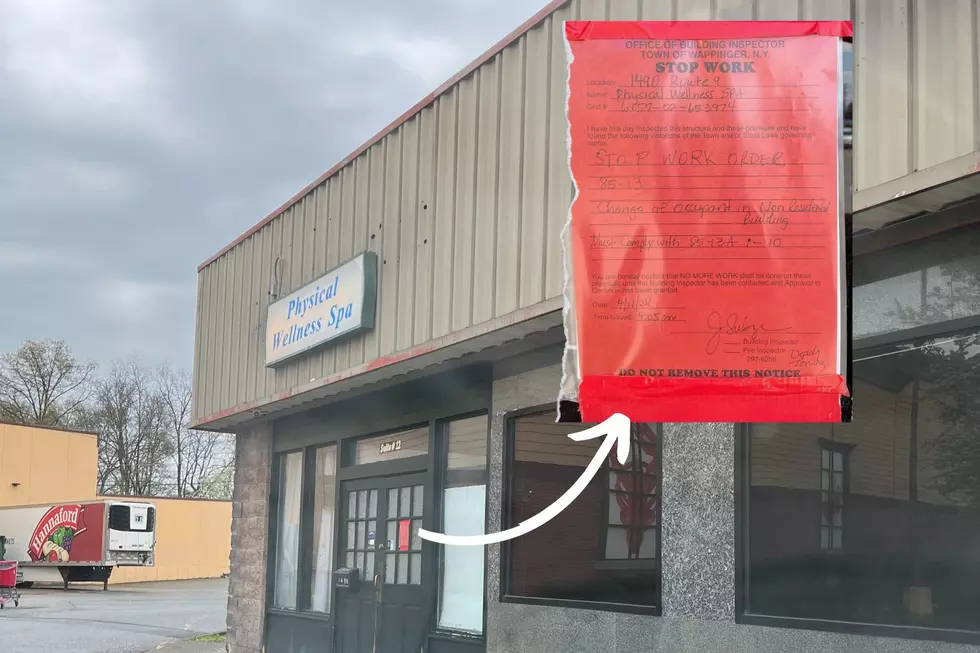
NEVER Say This Triggering Phrase in the Hudson Valley
Besides "Stewart's is closed," and "Route 9 is backed up," there are few phrases that will send any Hudson Valley resident into a fit. There are certain words and phrases; however, we should be careful with because they are straining our most important relationships.
Sticks and Stones May Break Your Bones, But Words Can Certainly Hurt Us
Preply surveyed Americans to uncover common trends in how we communicate in stressful situations. According to Preply's study, the majority (80%) of Americans say their tone becomes more hurtful when stressed. When stress levels rise, 87% confess to using language they later regret, and a notable 76% say stressed communication has hurt their personal relationships.
This being said, there are ways to minimize the stress. Stress is part of our delay lives and its hard to completely avoid it, but there are words and phrases we can avoid to promote more efficient communication.
Negativity in the Workplace Dampens Motivation and Job Satisfaction
When it comes to workplace communication, certain phrases uttered in moments of stress stand out for their regrettable impact. The repercussions of such stressed-driven words are significant. Over two-fifths of employees acknowledge that their words, under stress, have sparked misunderstandings or conflicts in the workplace. When it comes to the phrases that Americans regret using at work, the top four consist of:
- "I don't care." 36%
- "Not my job" 29%
- "This is a waste of time." 24%
- "I'm too busy." 24%
The above phrases are very dismissive and offer no solution to any interaction. It underplays the value of whatever you are talking about, and can easily zap the energy out of the environment.
Personal Relationships Suffer as People Don't Know How to Properly Communicate
A considerable 76% acknowledge that stress-tinged communication has strained their personal relationships. This high percentage indicates that for the majority, the way stress influences their interactions can lead to misunderstandings, conflicts, or a general deterioration in their relationships. A vast 88% have distanced themselves from someone they perceived as overly negative. This tendency is more pronounced among women, with 92% choosing to distance themselves compared to 84% of men.
When it comes to the phrases that Americans regret using using in personal relationships, the top 3 are:
- "I don't care." 45%
- "You never listen." 38%
- "It's always about you." 33%
Each of those phrases are dismissive and combative. They don't allow for a dialogue of listening and understanding. Essentially, once you say one of these phrases, you are putting up a brick wall, not allowing for solid back-and-forth.
The Most Triggering Phrase in America Is...
If you’ve ever felt a knot in your stomach from someone saying, “We need to talk,” then you’re familiar with the physiological reaction that your body has to certain words and phrases. These phrases, loaded with anticipation and often negative connotations, are commonly dreaded. The top 3 most triggering phrases in America are:
- "I have some bad news." 65%
- "We need to talk." 63%
- "I expected more from you." 57%
The first two put whoever is hearing these phrases in a heightened state. Simply saying those phrases can put someone in a fight or flight mentality in preparation for the news that is to come. As for the third phrase, the person becomes deflated and can withdraw, or can become defensive and combative.
How We Can Communicate Most Effectively
The problem with poor communication is a lack of empathy. Preply language expert Sylvia Johnson says that “the key is to approach the situation with empathy, transparency, and a commitment to support. The language you use is critical so use words that inspire calmness and clarity.” She follows by saying that we should deliver information as straightforward as possible and avoid unnecessary ambiguity.

As we have gone into the worst phrases to say to someone, we should also look at the most calming phrases. The top 5 most calming phrases are:
- "We'll figure it out." 68%
- "We can handle this." 58%
- "I'm here for you." 56%
- "We're in this together." 53%
- "Everything will be okay." 48%
Each of the above phrases prioritize the person you are talking to, and reassures them that they are not alone. Incorporating mindfulness into our communication entails being fully present, practicing active listening, and articulating thoughts with clarity and empathy. Such mindfulness is pivotal in varied contexts – from the workplace to personal interactions, and in mastering a new language.
You can find Preply's full findings by visiting this link.
The Hudson Valley's 10 Best Adult Novelty & Sex Stores
Gallery Credit: Conor Walsh
Start Your 2024 Fitness Journey at These Poughkeepsie, NY Gyms
Gallery Credit: Conor Walsh
Hudson Valley's Top 10 Ways to Enjoy a Snow Day
Gallery Credit: Conor Walsh
More From WRRV-WRRB









